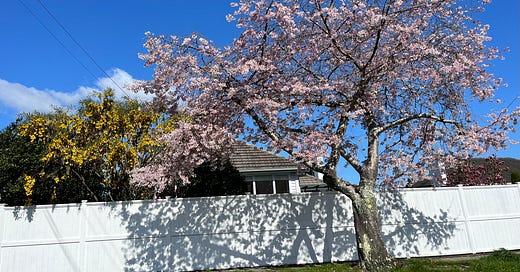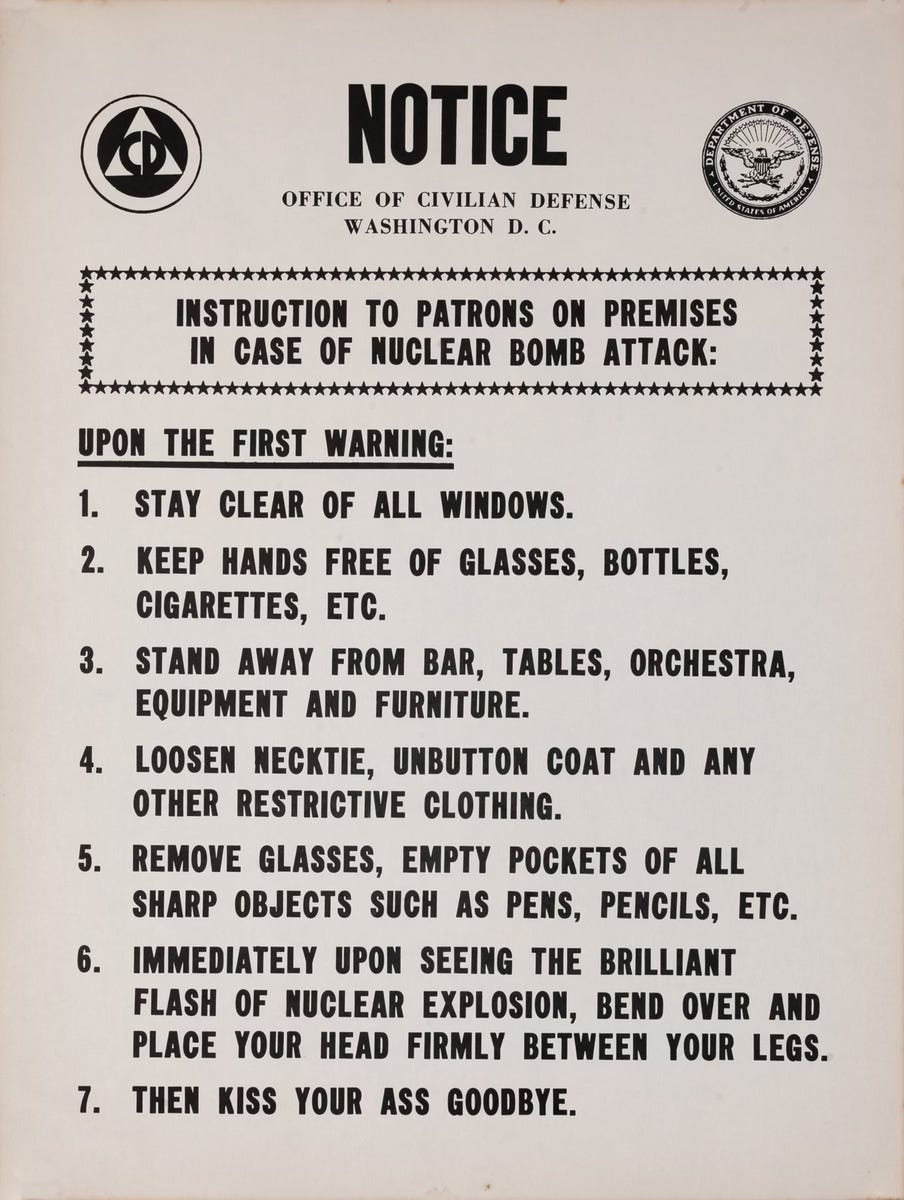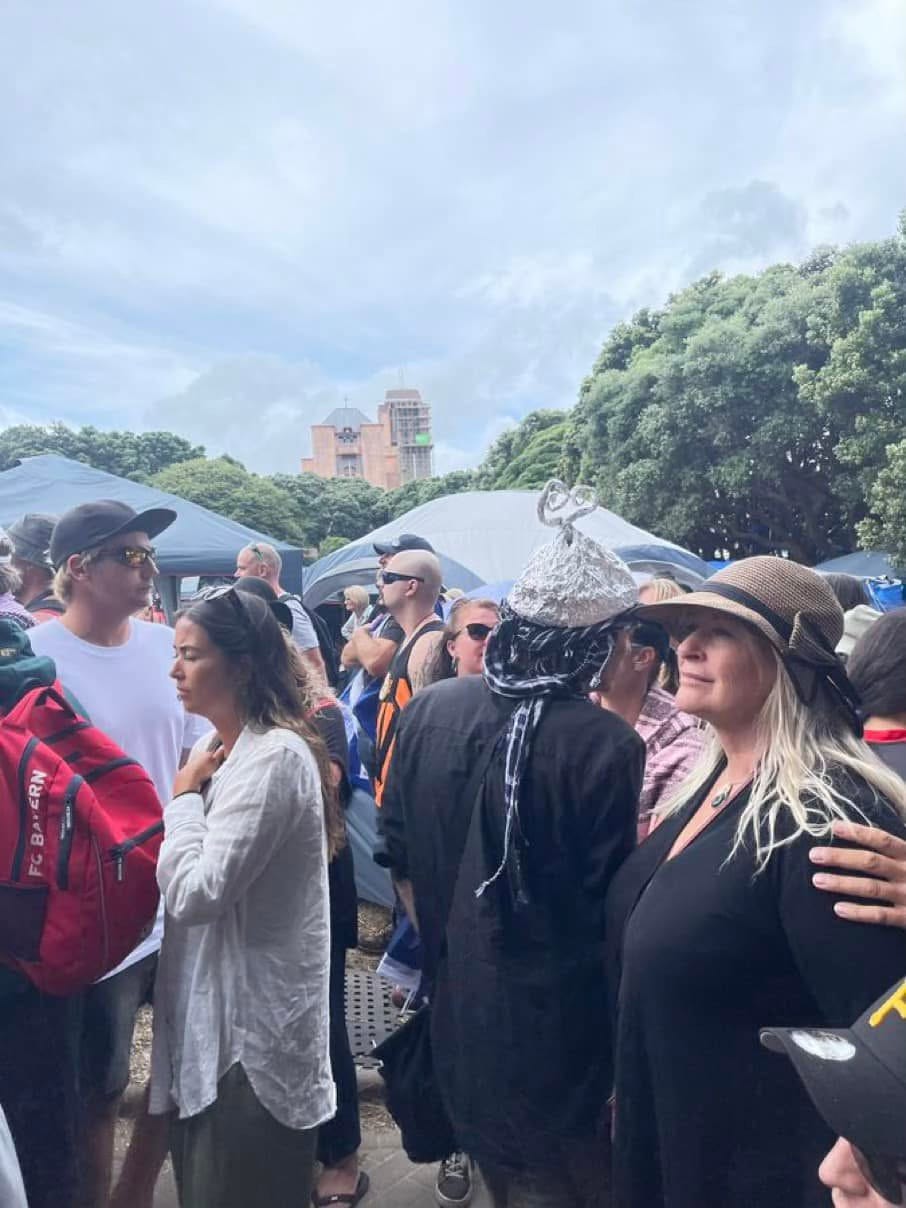Rolling, in the Neighbourhood
"You don't know me; you haven't seen what I've seen." - Sisters Underground
Not so long ago, a red-faced child accosted me in the street. At least that’s how it appeared to me, as I remained rooted to the footpath, like Lot’s wife in the desert, my mouth hanging open. Later, the barbs and quips I might have uttered would reveal themselves, but being bailed up by what I imagined to be an enraged cherub, with its equally ferocious quadruped, dumbfounded me. The animal was a dire wolf, standing almost as tall as her. I imagined it could if commanded, knock me flat and straddle my paralysed body, its massive head lowered, a gravelly growl sounding deep in its barrel chest. Her mouth opened, and I flinched.
Instead of the expected tirade, her tone was flat, emotionless. “What are you doing, looking at my house?”
I quickly revised my assessment of her age and prepared to prevaricate, “Why would I do such a thing?”
Technically, I was, but my motives were pure. Who wouldn’t stare? The fence I’d been examining looked like the Incredible Hulk had kicked it in. Her baleful expression rattled me, and I blurted. “Thought I heard something last night,” I said, reaching for a conciliatory response. “Boy racer?”
“Wasn’t.”
She was giving me the heebie-jeebies. Her belligerence seemed out of proportion to the alleged offence. Perhaps I should try for common ground. “I live just around the corner. Thought your house might have been damaged.”
“What’s it to you? How’d you like it if I stared into your property,” she said, glaring malevolently. A warning rumble came from the canine.
“As your neighbour, I was concerned,” I said.
Her expression was a mixture of incredulity and utter distrust as she spat out, “How about you apologise and fuck off.”
My tongue toyed with the notion of reminding her this was a public thoroughfare, but I settled for a mumbled, “Sorry, sorry,” then scuttled off. Call me thick, but until that moment, I hadn’t twigged that, for this woman, my actions had been tantamount to a home invasion.
Later, my lingering disquiet soothed away by a fragrant cup of Earl Grey, I considered the socio-political aspects of the encounter. Boomers can’t hope to bridge the chasm between them and millennials. My generation, born in the wake of the Second World War, inherited the boom years of the fifties and sixties. To those who followed, we’re materialistic, hedonistic, entitled. There’s a certain amount of truth in that.
Boomers vs Millennials
I grew up in the shadow of war and the mushroom clouds of Hiroshima and Nagasaki. The Cold War marked me and my peers from childhood to maturity. I recall the ubiquitous 1970s Bend over and kiss your ass good-bye anti-nuclear posters. Fair enough, we decided, if the world’s about to end, let’s party. We were loose, but also idealistic, political, and strong on social justice. We worked hard, made money and became known as ‘the bank of mum and dad’. Now we’re resented for it. On a recent holiday, my younger relatives talked openly about generational wealth and how it pissed them off that there wouldn’t be any for them.
They had a point. I recall, long ago, laughing over a few wines on the patio about SKI – spend your kids’ inheritance – holidays. Our hilarity now rings careless. Back then, we all had jobs, owned houses and threw cash around as if life was a lolly scramble.
Millennials tend to earn less than their parents did, and flat wages have locked them out of the housing market. They watched the planes plough into the Twin Towers and grew up under the threat of global terrorism. They hope to have full financial independence one day but fear it’s out of reach. No amount of overseas travel, smashed avocado, and espresso coffee can make up for it, and their resentment runs deep.
Even though we were strangers, Wolf Girl would have despised me, imagining I was an asset-rich, National Super-gilded leech sucking the blood from her future. She came across as paranoid. I was raised in Neverland, where daily newspapers were printed, and there was no internet or social media. We knew nothing of ‘stranger danger’. Our parents didn’t drive us to school, and, in the holidays, we ran wild from the time our mothers booted us out to “get some fresh air” until our rumble-tums drove us home for tea.
There was a flasher up the road, the older brother of a school friend. We used to line up outside his window and wait for him to show us his willy, and then we’d run home yipping and hollering. Of course, there were perverts everywhere, even then, sometimes in our own homes and schools. In my last post, I wrote of one such, hiding in plain sight among the eleven-year-olds. Without Facebook to rark us up, there was no dark side. Such innocent beginnings had made me naïve in matters of personal safety.
Later, I wondered if my street-side adversary might be a card-carrying member of a new tribe, bred in the fear and resentment of the Covid pandemic, hordes of whom had swarmed onto Parliament’s lawn on 8 February 2022. Rewatching a documentary recently covering the violent end of the twenty-two-day, ‘peaceful’ protest that erupted into mayhem, I reflected on how much had changed since then.
When peace turns to chaos
The documentary opens with a lone man dancing to Plastic Ono Band’s Give Peace a Chance. Behind him, ranks of police in high-vis jackets stretch up Molesworth Street, as far as the Port-a-loos trucked in to cope with the influx. The film cuts to billowing black smoke, flames from burning tents, and a mass of heaving bodies. Police advance step by step, perspex shields thumping against flesh in time to the chant, ‘Move, move, move.” The push and pull will continue throughout the day until further police reinforcements arrive and the crowd is overwhelmed.
It had begun on 8 February with a convoy of cars, vans and trucks sweeping through Wellington’s streets to disgorge hundreds of men, women and children who, virtually unobstructed, claimed the lawns in front of the Beehive and set up a tent city. For the next three weeks, Bob Marley ruled the soundwaves, a string of speakers spoke against the injustices of the Government’s vaccine and mask mandates, and there were more than a few tin hats to be seen. The sun shone, and the vibe was 70s hippie.
The occupation spread to nearby streets, disrupting businesses and traffic and the passage of commuters from the nearby railway terminus to their workplaces. Calls intensified for police to step in. However, the occupation had attracted many different factions – including anti-vaxxers, conspiracy theorists, and the generally disaffected – and the lack of unified leadership hampered police efforts to negotiate a quick resolution. The days dragged on, rain fell, and the site became a sea of mud. Makeshift catering and toilet facilities deteriorated; children played on the polluted ground and, with not a mask to be seen, Covid spread.
Over the years, there have been many marches to Parliament to deliver petitions and political messages. A farmer protesting against a proposed methane tax once tried to drive a tractor up the wide concrete steps leading to the legislative chamber. This time was different. It was manifestly illegal and potentially deadly. After all efforts to persuade the protestors to leave failed, the mood shifted, and when the wall of blue swept across the perimeter, peace and love turned petulant, then violent.
“Chaos is how I’d describe it, said a journalist. “No other protest would come close to anything like that.”
Recalling the moment when New Zealand First Party leader Winston Peters strolled through the crowd, kissing babies and pressing flesh, it seems like a watershed. I thought then that his sole purpose was to rebuild the constituency lost after his party was booted out in 2020. And so it was; he walked, he listened, and he sucked them in.
Two years later, that wave of support would carry him back into power, to share the Deputy Prime Minister role with another political outlier who played a different, but to me equally incomprehensible, tune of division and hate. The protest seemed to have spawned an influx of individualism and authoritarianism that would threaten social cohesion and collective well-being in Aotearoa.
Is it any wonder my neighbour suspected me of being up to no good when I was only mindlessly rubbernecking? Such cognitive uncoupling baffles me daily. In the shadow of division, peace feels more removed than ever, and I fear for my future and the one my mokopuna will encounter.
Have I, too, been affected by the current atmosphere of suspicion and fear? I hope not. My friends are not a glum lot. We remember things were once different, but maybe that’s because we knew less back then. Ignorance is bliss, they say. Perhaps the answer is to turn off the doom and gloom and remember that everything passes, there’s only today, so best get on with it.
Today, I took a broken hose coupling to the big hardware store in town, expecting to be told I’d have to buy a whole new reel. Instead, the young woman in the garden section called the supplier and got the nod to unpack a new box and extract the part.
“It’s okay,” she said. “I’ll reorder a new one. There’s no charge.”
“Bonus,” I say, and we laugh.
Her warmth followed me as I strode through the sliding doors, feeling like I’d won Lotto. Now and then, there’s a win to remind you the world isn’t all darkness and terrors. Later, I signal for someone to merge into the traffic queue and, in return, get a wave. Back home, I make a brew and vow to be less critical, more kind and, above all, to be happy.








“What are you doing, looking at my house?” was a way we'd start fights with the other neighborhood kids - a variation of the old 'what are you looking at' challenge. It made you feel like a king - like you had complete control over where people looked, and if they diminished your mana by looking in the wrong direction, all hell broke loose.
“What are you doing, looking at my house?” this made me smile.
Brilliant. Excellent. Stupendous. "Review: Anna's writing invites thought...and appreciation!" I smiled because I enjoyed it, and also because there's a certain synchronicity at the beginning with today's episode 26 of 'The Wrong Man'. You'll see what I mean when you get around to it! (Or was that your heart already?) ... https://annieblackwell.substack.com/p/the-wrong-man-episode-26-kogarah